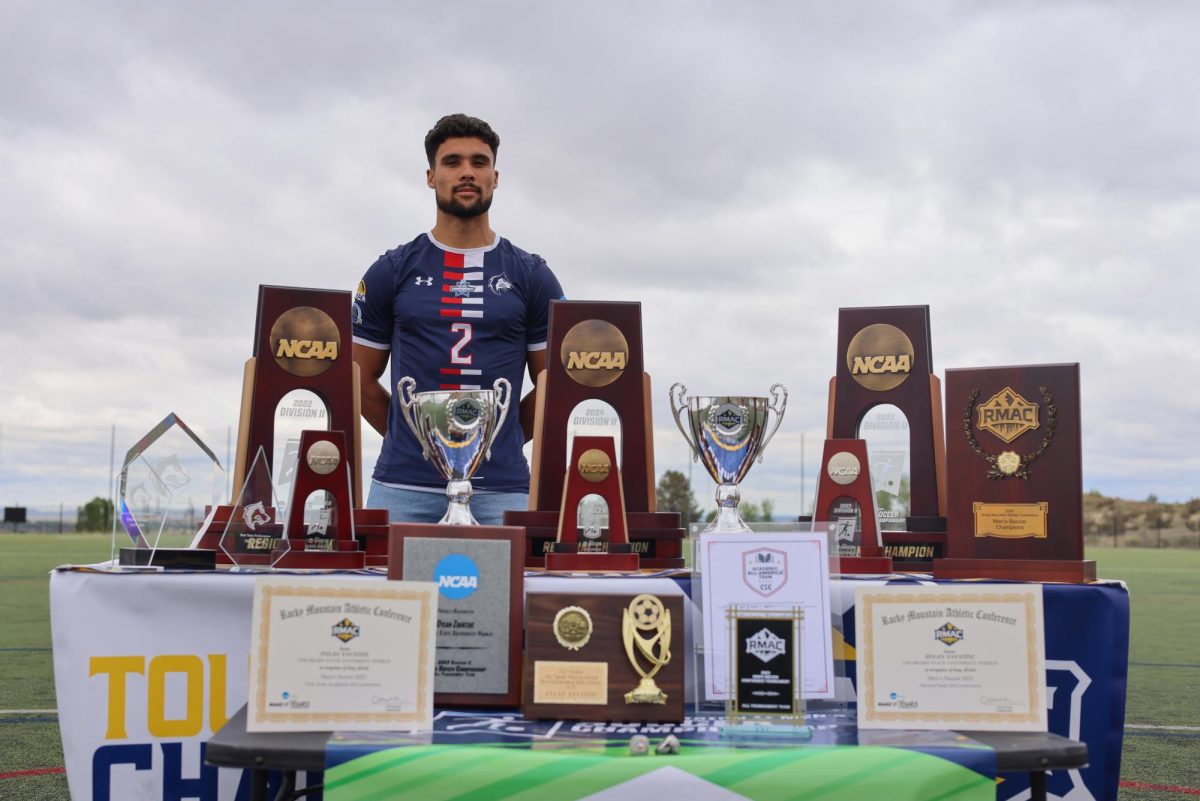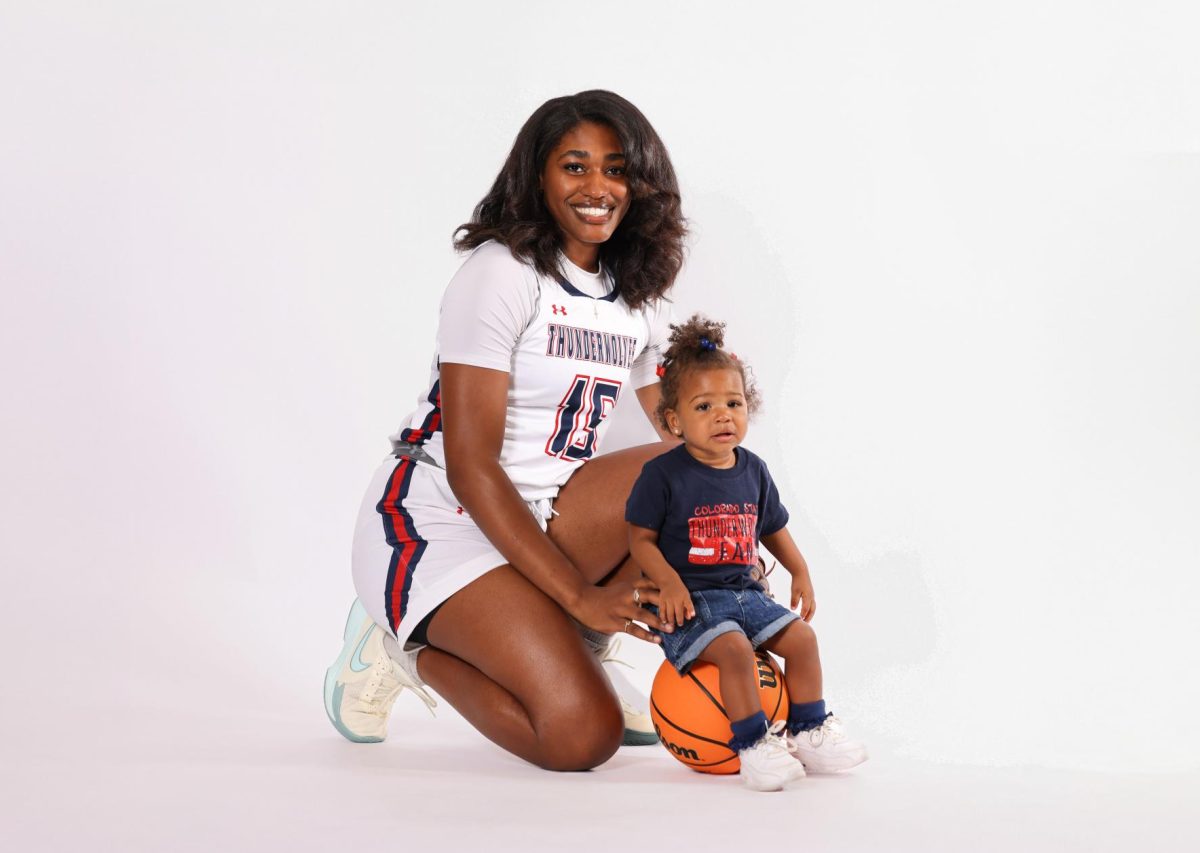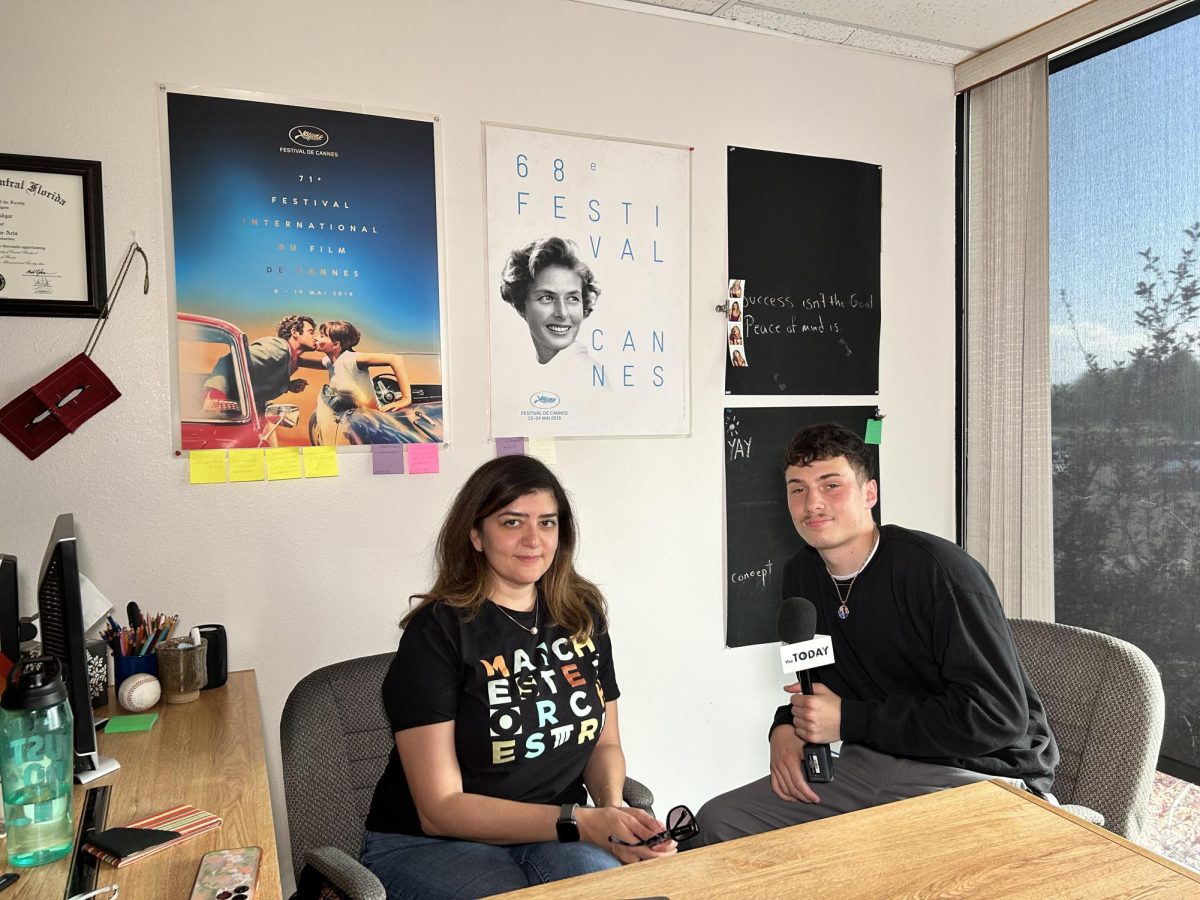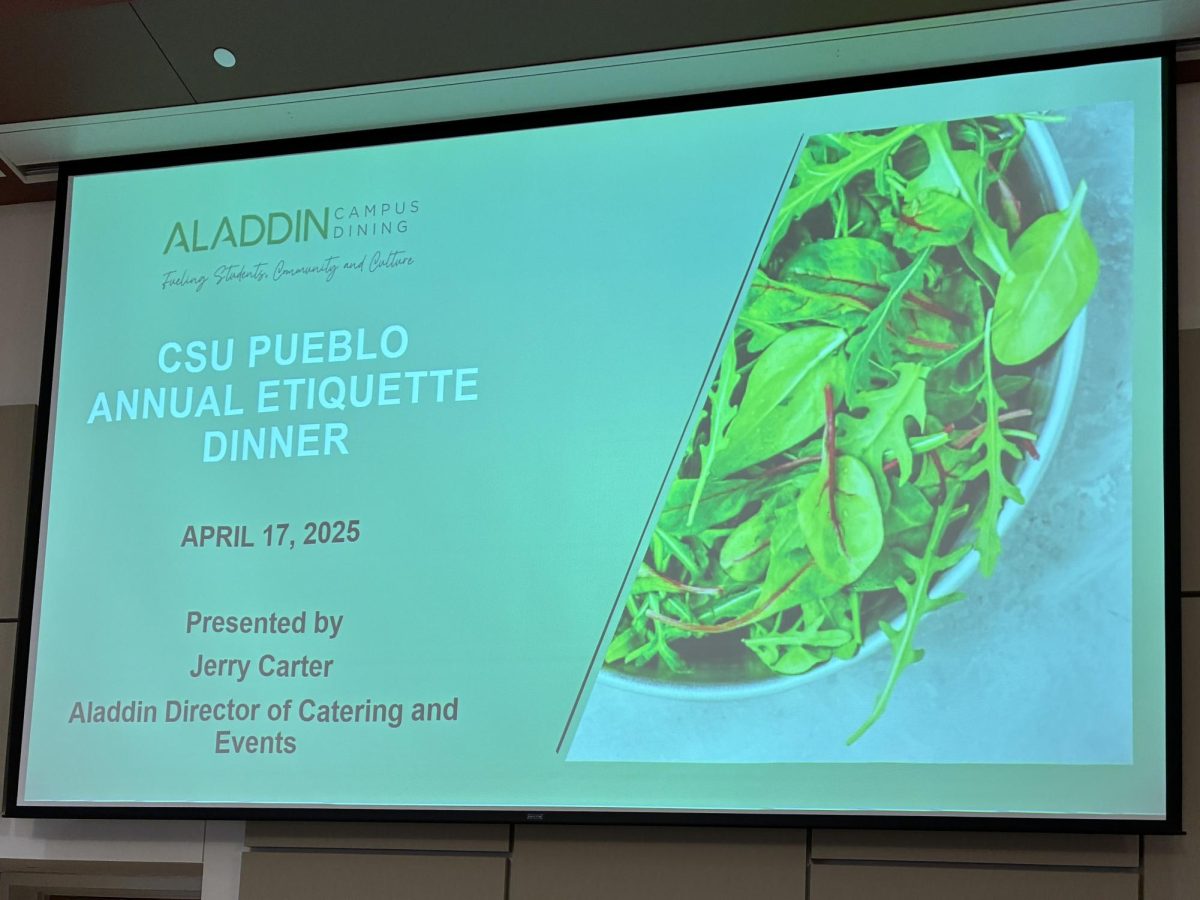Artists of all kinds from African and Latino heritages were featured Thursday in a Black History Month presentation highlighting works dating back to the early 1500s.
Adjunct history professor Jackie Stroud presented examples of the artists’ works and contributions to the world of art in the First Year Center in the library.
 Stroud has been teaching at CSU-Pueblo for more than four years and has also taught at Winona State University in Minnesota. While at WSU, Stroud was a member of the Multicultural Committee for 13 years.
Stroud has been teaching at CSU-Pueblo for more than four years and has also taught at Winona State University in Minnesota. While at WSU, Stroud was a member of the Multicultural Committee for 13 years.
“I truly believe the world of art is more multi-faceted than people can wrap their minds around,” Stroud said.
The presentation included photography, paintings and drawings from African, Cuban, Brazilian, Peruvian and Mexican artists, to name a few.
In addition, Stroud said Afro-Latino contributions did not stop with art.
“People have the impression that cowboys originated from the West in America,” Stroud said.
Cowboy movies began appearing as early as the 1920s, and Stroud said she feels that is when and where Americans made the assumption about the cowboy.
Africans were great horsemen, Stroud said, as she emphasized the role they played in the cowboy culture.
“They made the first leather saddles and chaps,” Stroud said, “not to mention the metal spurs which they made.”
Metalworking was a common skill which Africans in Kenya and Congo were accustomed to. In addition, the modern spurs, metal details on cowboy attire and the oversized belt buckle were all originated from African metalworking.
Stroud also said Africans were raising cattle in Kenya long before the Americans of the west.
“Obviously, there is a huge African influence in America,” Stroud said.
In addition to the African cowboy influence, the Latin American culture also influenced the
culture.
For example, poet Gabina Ezeira and other 19th century poets wrote about the Afro-Latino cowboys’ lives, songs, dialects and environment.
“Gaucho guitar men from Argentina would even use African words in their songs,” Stroud said. “The fusion of cultures is astounding.”
The population of Africans in Latin American countries is a testament to the gathering of the heritages, Stroud said.
Also, cowboys became the main subject of art in Latin America, Stroud said.
For instance, Stroud presented some paintings and sketches of Bose Ikard who was originally a slave in the U.S. and later became one of the first black cowboys. Ikard was also one of the first cowboys to travel the trails in Colorado.
“As a slave, Ikard found his way off the plantation and into the wild,” Stroud said. “The Wild West in fact.”
In addition to Stroud’s presentation of Afro-Latinos as the first real cowboys, she also said there is a reason why most people do not know or understand this reality.
“People hear the word ‘Africans’ and immediately think slavery,” Stroud said.
She said she wants people of all cultures to realize that slavery is not what the Africans were and are about.
“The art world goes beyond slavery,” Stroud said.
Talking about this reality will not completely change the stereotype because the world is about seeing and believing, Stroud said.
In addition, Stroud said she wished more people would attend events like this because it they contribute to the understanding and discovery. A total of six students, along with President Joseph Garcia attended Stroud’s presentation.
“Breaking ignorance means breaking the silence,” Stroud said.









